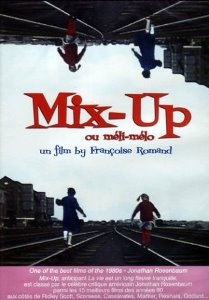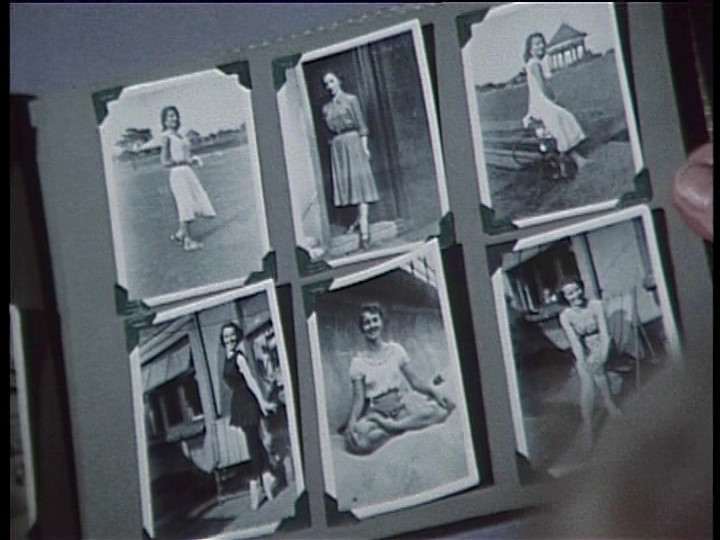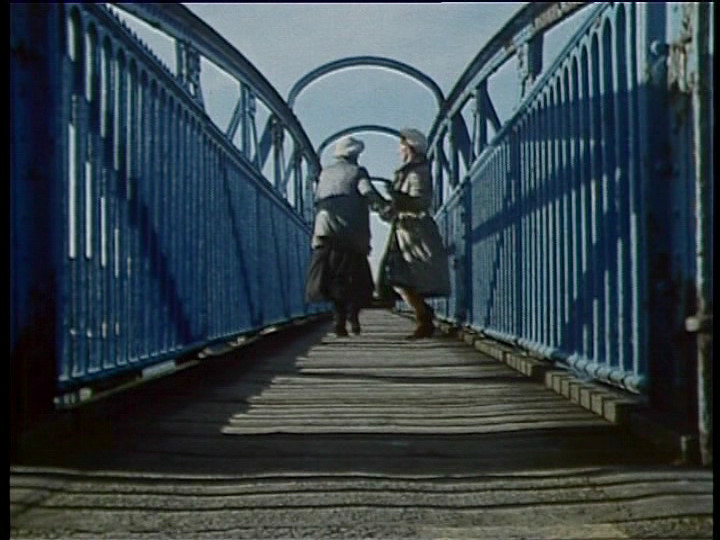![]()
![]()

![]()
![]()
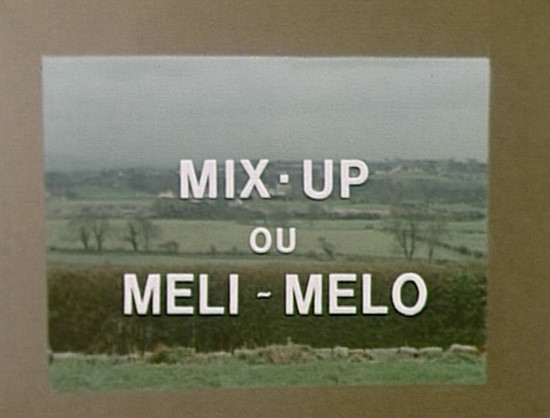
Directed by
Françoise Romand
France 1985
One of the most remarkable and innovative documentaries ever made, this film by Françoise Romand follows the famous true story of two English women who as babies got switched in the hospital and 20 years later discovered that they'd been raised by the wrong sets of parents. Romand enlists all the surviving family members in her haunting and bizarre investigation, which involves not only a recounting but a reenactment of all the significant events in the two daughters' emotional histories. The seriousness and thoroughness with which she pursues her approach create a formal beauty and a witty precision in framing, pacing, editing, use of music, and mise en scene that is inseparable from the film's ethical and philosophical project... The "mix-up" of the title refers not only to the putative subject but to many stylistic and formal collisions: fiction versus fact, French versus English, memory versus imagination.
***
Francoise Romand's 1985, 63-minute Mix-Up, as densely packed as a 500-page novel, has the French title Meli-melo, which my dictionary defines as a "jumble (of facts, etc); hotchpotch; medley (of people, etc); clutter (of furniture)"--all of which describes the film's startlingly original method as well as its fascinating, evocative subject.
In November 1936, at a nursing home in Nottingham, England, two middle-class
women, Margaret Wheeler and Blanche Rylatt, gave birth to two daughters.
Through a mix-up in the files, each woman was presented with the wrong baby
afterward--a fact confirmed only in 1957 after strenuous efforts by
Margaret, who had suspected something was amiss from the beginning and
retained a rudimentary contact with the Rylatts as a consequence. At this
point, each 20-year-old daughter--Peggy, who had grown up with the Rylatts,
and Valerie, who had grown up with the Wheelers--discovered that she had a
different set of parents.
Romand's major coup is to have enlisted the entire Wheeler and Rylatt
families in her project--not merely to recount the story with all its
complex ramifications, but to reenact it at crucial stages, using the
original participants playing themselves at various ages, and reflecting in
the present about what the whole experience meant and did to them.
(Exceptions to this rule include Blanche's husband Fred, who died in 1975;
Peggy and Valerie as infants and toddlers; and, in a few abstract episodes
set around parallel and diverging railroad tracks, the girls as
preadolescents.) To make this enterprise even stranger, Romand stages and
orders these scenes in a highly stylized manner, visually, aurally, and
conceptually, in the families' homes and surrounding locations.
As a consequence of these strategies, one watches much of Mix-Up in a kind
of stupefied awe and amazement. One first tries to figure out how Romand
managed to convince both of these proper English families to cooperate in
such a bizarre avant-garde concoction. One then is further awed and amazed
to gradually realize that Romand's radical subversion of documentary
conventions is strictly functional in exploring the implications and nuances
of her subject. Indeed, the mix-up of the title refers not only to the
switched babies but, in Romand's dazzling presentation, to the confusions
between fact and imagination, English and French sensibilities (the film was
made bilingually for French TV), emotion and analysis, past and present, and
tragedy and comedy.
Excerpt from Jonathan Rosenbaum's article at Romand.org located HERE
Theatrical Release: September 12th, 19865 - Toronto Film Festival
Reviews More Reviews DVD Reviews
DVD Review: Microcinema - Region 0 - NTSC
| DVD Box Cover |
|
CLICK to order from: |
| Distribution | Microcinema DVD - Region 0 - NTSC | |
| Runtime | 1:01:28 | |
| Video | 1.33:1
Aspect Ratio Average Bitrate: 6.88 mb/s NTSC 720x480 29.97 f/s |
|
|
NOTE: The Vertical axis represents the bits transferred per second. The Horizontal is the time in minutes. |
||
| Bitrate: |
|
|
| Audio | English (Dolby Digital 2.0) | |
| Subtitles | English, German, French, None | |
| Features |
Release Information: Edition Details: • Text
screen Biography |
|
| Comments: |
I'm not going to get too picky with this frugal DVD as puny Microcinema certainly don't have the budget of, say, a Criterion or Warner. Mix-up shouldn't be disregarded on the basis of the image/audio quality. Actually the transfer rate is quite acceptable so we'll assume that the print itself is not in pristine circumstance (which it probably isn't). There are scratches and slight damage marks. The single-layered DVD is interlaced. Image quality is about the level of VHS but there are optional English, French or German subtitles supporting the standard, but audible, English language dialogue.
Supplements include some text screen bios, filmographies and a photo gallery plus a nice 15 minute 'intro' by the director (for about half) and then, DVDBeaver contributor and journalist, Jonathan Rosenbaum. Albeit short from both sources - it is exceptionally good to listen to - a kind of overview of the production/vision and its impact. The DVD inferiorities don't take away from the magnificence of this documentary at all - in fact it may ingratiate it with a kind of 'realism charm'. This is one of our most recommend DVD accessible documentaries folks. Price is not cheap but the content is worth double - easily. Strongly recommended! |
DVD Menus
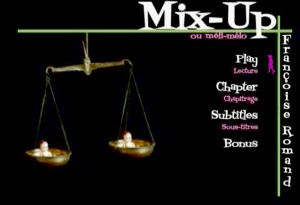 |
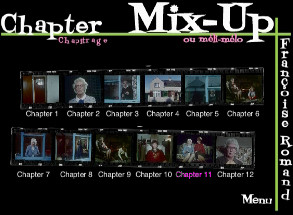 |
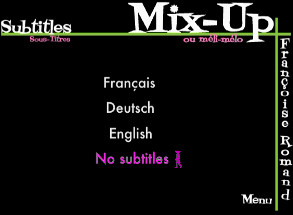 |
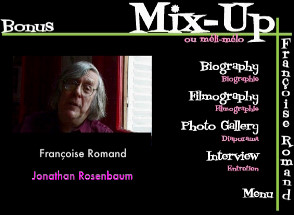 |
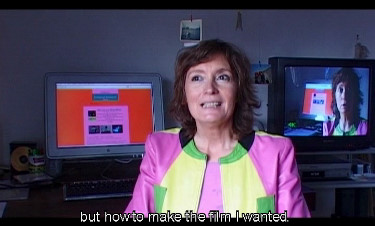 |
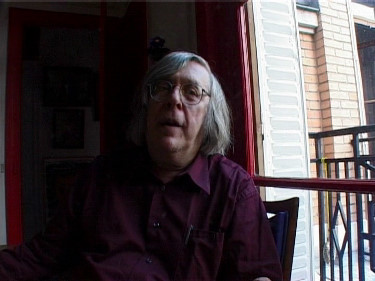 |
Subtitle Sample
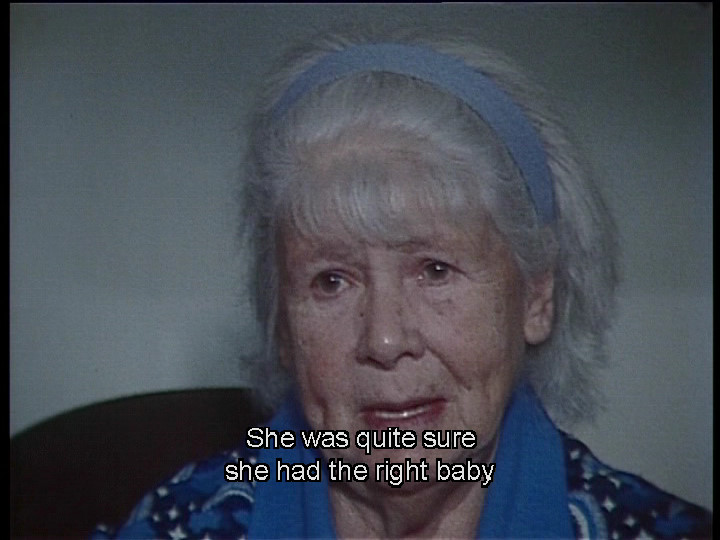 |
Screen Captures
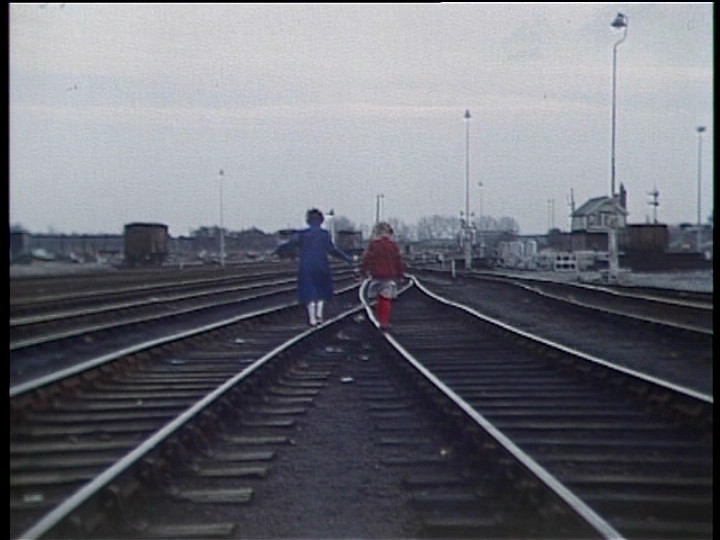 |
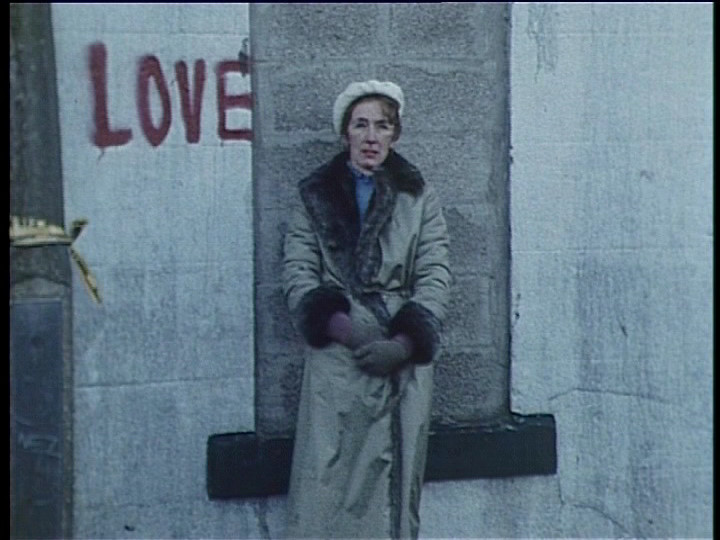 |
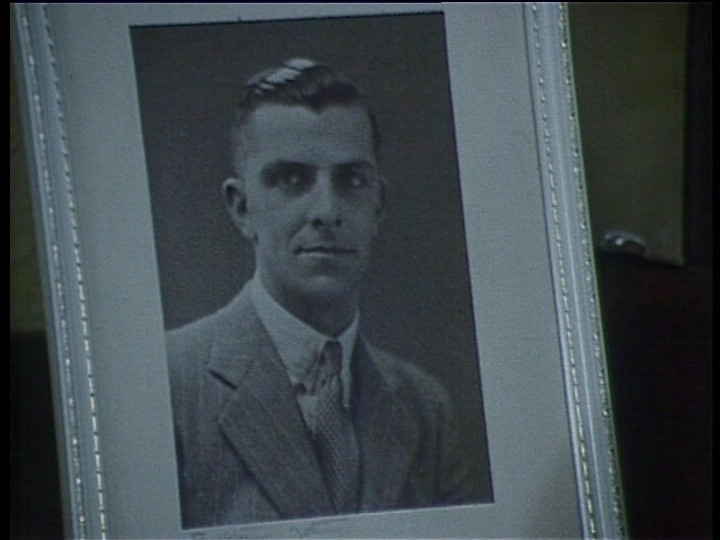 |
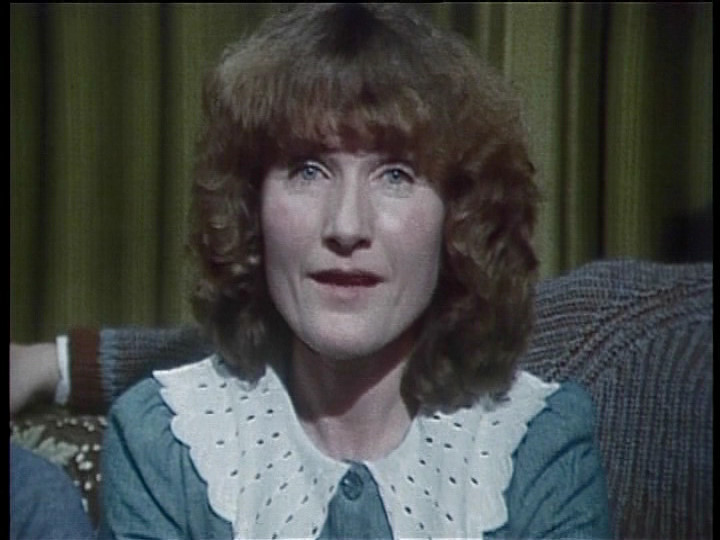 |
